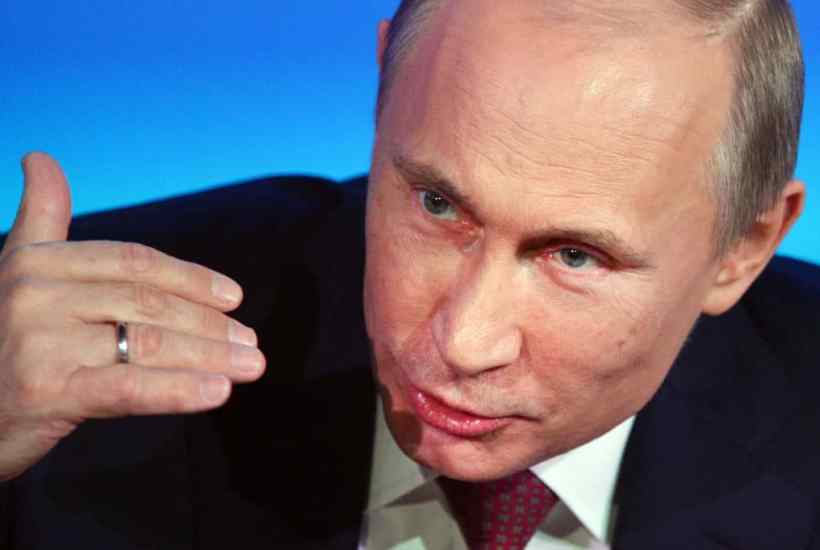The normal justification for sanctioning oligarchs is that doing so will cost them money, causing them to put pressure on Vladimir Putin so he stops killing Ukrainians. But this rests on the untested assumption that they are able to put pressure on him, and that is where the plan is currently falling down. Oligarchs are not what they used to be.
Our idea of the Russian oligarch was born in the 1990s, when a tiny group of men emerged from the wreckage of the Soviet economy, using their nous to seize anything with real value. While the Russian government was left with all the costly bits of the communist state – hospitals, schools, roads and the like – the oligarchs took over all the profitable bits: oilfields, aluminium smelters, anything that could earn dollars on the international markets.
It was like the oligarchs had come from nowhere, but they felt no embarrassment over their rapid rise. They were vulgar, swaggering and arrogant. They ran television stations and newspapers, they funded political parties, and they alternatively battled and cooperated with each other as they sought ever-greater advantage, which they could then barter into ever-greater wealth. If the oligarchs of today were still like that then putting pressure on them would bring the Kremlin round in a matter of days. The trouble is that the 1990s was a long time ago, when people did things differently, and our ideas of Russia have not fully caught up.
The oligarchs’ behaviour was unsustainable and, in 1998, the economy collapsed under the weight of mismanagement. Russia defaulted on its debts, and – in his quest for a new prime minister – then-President Boris Yeltsin chose a barely-known ex-spy: Vladimir Putin. The oligarchs appear at first to have thought they could control him, but this was a miscalculation.
He responded to criticism from media outlets by shutting them down. I remember seeing the employees of the independent television channel NTV defiantly waving flags from their office windows while the police waited outside. It didn’t do them any good. They lost their jobs, and the oligarchs who’d employed them fled the country.
With control over the media secured, Putin then went for the money. In 2003, police officers arrested Mikhail Khodorkovsky, the richest man in the country. He had had the erroneous idea that he was still able to speak and act as if he was an independent actor, rather than as if he existed solely at the pleasure of the Kremlin. I remember seeing Khodorkovsky, just a few feet away from me, sitting in a shabby courtroom like a common criminal. It was like seeing a lion shaved and caged.
He received an eight year jail sentence, his oil company was taken away, he was found guilty of other charges while in prison, and the other oligarchs got the message. When Russian troops were bombarding Grozny in 1996, oligarch-owned news channels had documented the horror as fully as western media did, turning ordinary Russians against the war and bringing it to a close. There is no equivalent now. Russian televisions show only what the Kremlin wants them to show.
The people we call oligarchs now, a Russian joke goes, are not really oligarchs, they’re just working as oligarchs. And there’s truth in that, a Russian billionaire today is as likely to be someone who got rich running a state company, or selling things to the government, as obtaining a natural resource in a rigged privatisation auction in the early post-communism days. They didn’t need chutzpah to get rich; they were just friends with Vladimir Putin.
This is not to say that many oligarchs have not hedged their bets, and evacuated significant chunks of their fortunes out of Putin’s reach. According to estimates from the economist Gabriel Zucman, who studies the international financial system, more than half of the Russian elite’s money is offshore, hidden behind multiple layers of shell companies in secrecy jurisdictions. But that does not mean they are willing to risk taking on the Kremlin; they have seen what happens to people that did.
The inevitable conclusion is that the assets of oligarchs are de facto, if not de jure, under Putin’s control. Hoping these people will put pressure on Putin is in vain, but that does not mean we should not sanction them. On the contrary, we need to do so to deprive him of resources he could use to wage war, to undermine our societies, or to attack our friends.
‘None of these Putin oligarchs will oppose the war or speak out against it,’ Khodorkovsky, who’s now in exile in London, told me. ‘Putin will be able use some of their personal money, which is why the sanctions against the Russian oligarchs who are close to Putin must be total. Only then we can be sure, that their money will not be used to support the war.’
Got something to add? Join the discussion and comment below.
Get 10 issues for just $10
Subscribe to The Spectator Australia today for the next 10 magazine issues, plus full online access, for just $10.



















Comments
Don't miss out
Join the conversation with other Spectator Australia readers. Subscribe to leave a comment.
SUBSCRIBEAlready a subscriber? Log in